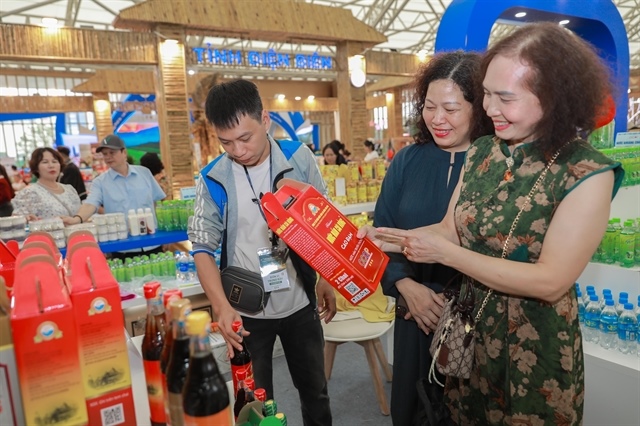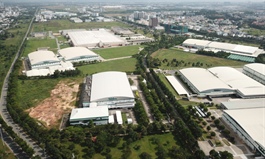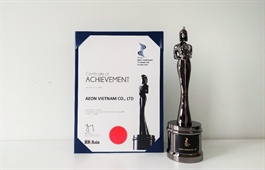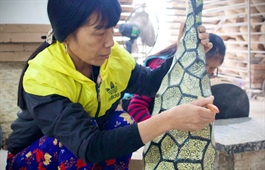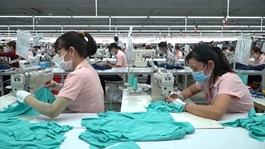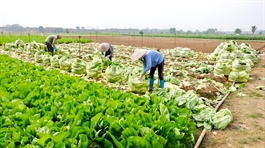Viet Nam grasps opportunities to expand agricultural export market
Viet Nam grasps opportunities to expand agricultural export market
Viet Nam's agricultural products are being exported to more than 180 countries and territories, particularly products moving from the mid-range market to the higher-end segment.

This information was provided at an online trade connection programme with the participation of representatives and business communities of India and three countries of the Greater Mekong Sub-region (GMS), namely Viet Nam, Thailand and Cambodia on Monday.
This formed part of a series of activities of a project to strengthen international integration of small and medium-sized enterprises (SMEs) of India and the GMS countries, towards promoting global value chains and trade between India and the GMS countries, which is financed by the Asian Development Bank (ADB).
Le Hoang Tai, Deputy Director of the Viet Nam Trade Promotion Agency under the Ministry of Industry and Trade, emphasised that farm produce and food were key exports of Viet Nam.
In the first nine months of 2021, Viet Nam earned US$20.1 billion from exporting food and agricultural products, up 10.8 per cent over the same period in 2020. The growth was attributed to a significant increase in both export volume and the value of many agricultural products.
The export markets of Viet Nam's agricultural products have expanded to more than 180 countries and territories. In particular, there is a shift from medium-segment markets to higher segment markets.
Tai said the participation in new-generation free trade agreements and extensive international economic integration brought great opportunities for Viet Nam, adding that Viet Nam could cooperate with India, Cambodia and Thailand to expand export markets for its agricultural products.
Vivek Sharma, General Director of Aarna Agro & Angel Fine Foods, said that the Vietnamese market could utilise equipment serving agricultural production.
Viet Nam had imported many products from India such as cotton, spice products, and especially rice, he added.
Participants expressed their interest in tariffs and import-export procedures of the GMS countries and India.






